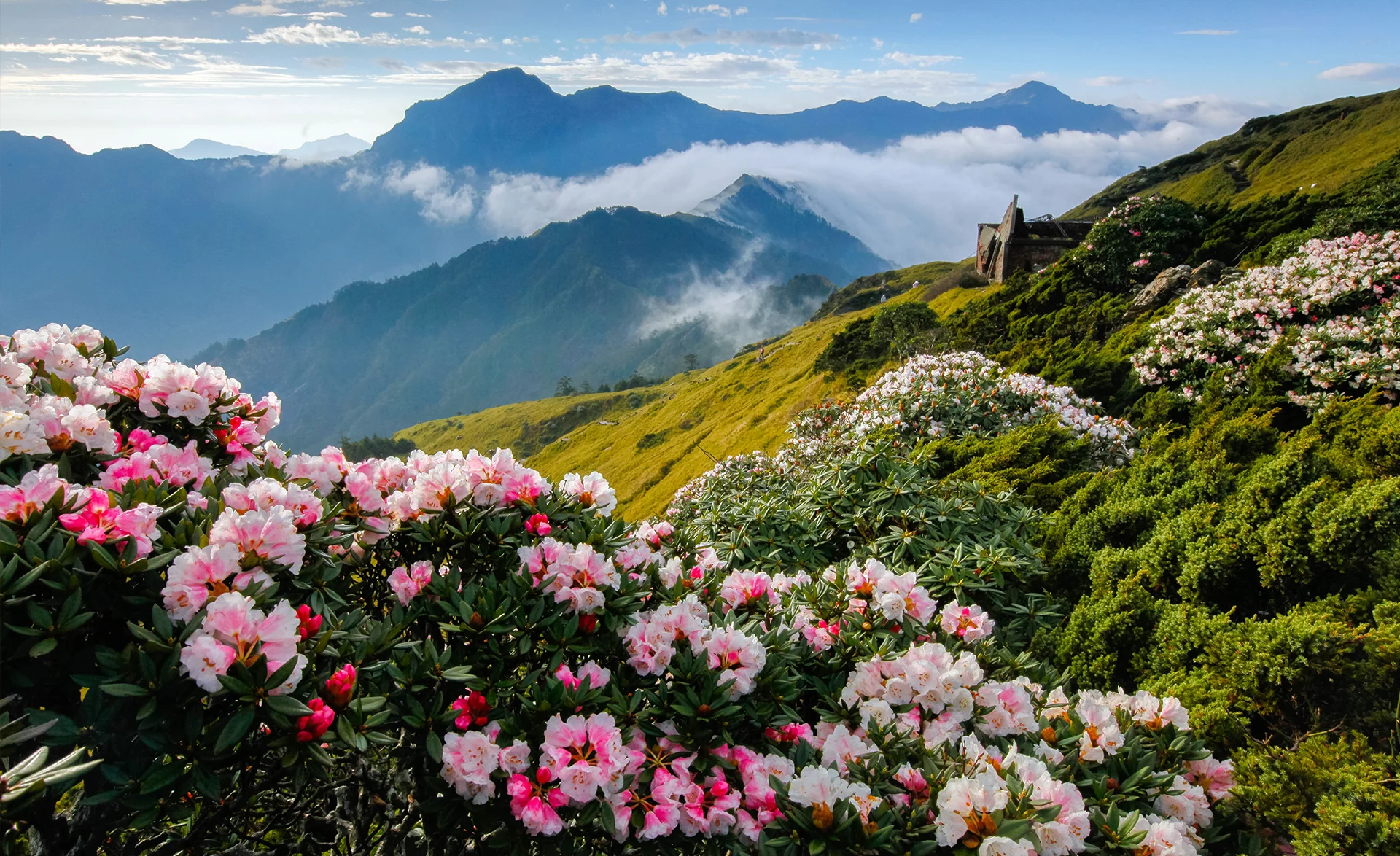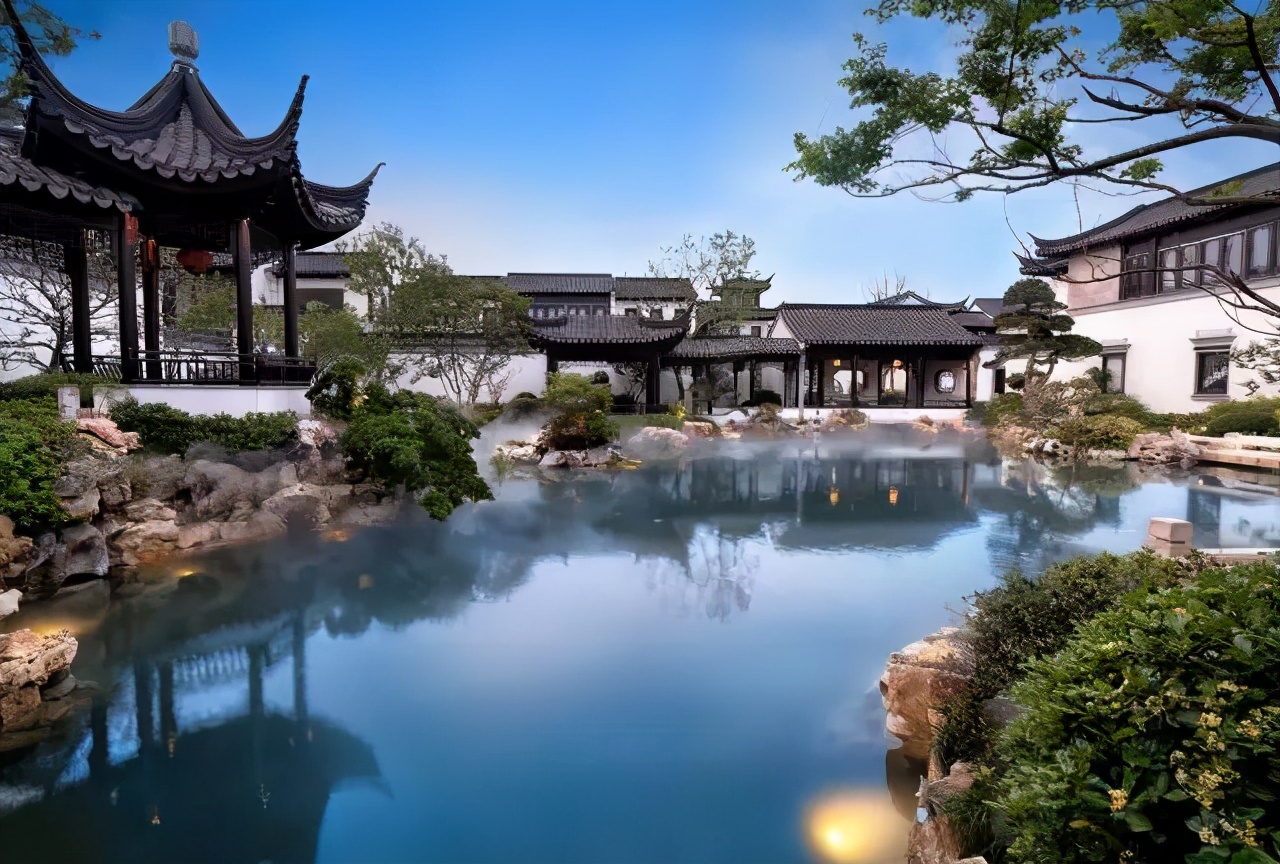
上有呀天堂 下呀有苏杭
城里有园林 城外有水乡
哎呀 苏州好风光 好呀好风光 哎呀哎呀
春季里杏花开 雨中采茶忙
夏日里荷花塘 琵琶丁冬响
摇起小船 轻弹柔唱 桥洞里面看月亮
桥洞里面看月亮 哎呀哎呀
秋天里桂花香 庭院书声朗
冬季里腊梅放 太湖连长江
推开门窗 青山绿水 巧手绣出新天堂
巧手绣出新天堂 哎呀哎呀
上有呀天堂 下呀有苏杭
古韵今风 天下美名扬 哎呀
说不尽苏州好呀好风光
哎呀哎呀
哎哎呀 说不尽苏州好呀好风光
哎呀哎呀 说不尽苏州好呀好风光





长亭外 古道边 芳草碧连天
晚风拂柳笛声残 夕阳山外山
天之涯 地之角 知交半零落
一壶浊酒尽余欢 今宵别梦寒
长亭外 古道边 芳草碧连天
晚风拂柳笛声残 夕阳山外山
长亭外 古道边 芳草碧连天
晚风拂柳笛声残 夕阳山外山
天之涯 地之角 知交半零落
一壶浊酒尽余欢 今宵别梦寒
长亭外 古道边 芳草碧连天
晚风拂柳笛声残 夕阳山外山
天之涯 地之角 知交半零落
一壶浊酒尽余欢 今宵别梦寒
长亭外 古道边 芳草碧连天
晚风拂柳笛声残 夕阳山外山
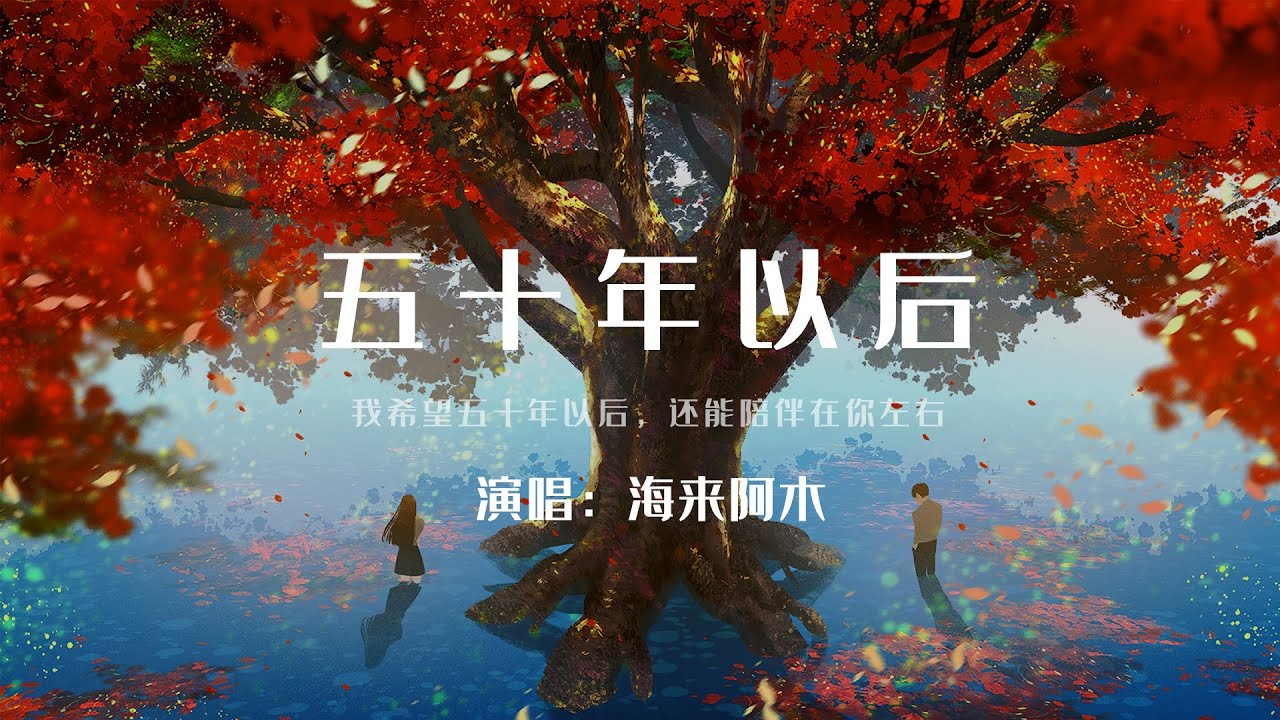
此生最好的运气
就是遇见了你
刚好你也爱我
我也爱着你
在这个尴尬年纪
我不再是一个人
多幸运能和你在一起
此生最大的欢喜
就是等到了你
是你带我走出
那片沼泽地
从我们交换信物
深情相望那刻起
我的余生就是你
我希望五十年以后
你还能在我左右
和你坐在摇椅里
感受那夕阳的温柔
听微风轻轻地吹
听河水慢慢地流
再聊聊从前日子
刚谈恋爱的时候
我希望五十年以后
你还能在我左右
那时都已白了头
还想听你叫我丫头
轻轻牵着你的手
静静靠在你胸口
这个画面是不是就叫做长相厮守
此生最大的欢喜
就是等到了你
是你带我走出
那片沼泽地
从我们交换信物
深情相望那刻起
我的余生就是你
我希望五十年以后
你还能在我左右
和你坐在摇椅里
感受那夕阳的温柔
听微风轻轻地吹
听河水慢慢地流
再聊聊从前日子
刚谈恋爱的时候
我希望五十年以后
你还能在我左右
那时都已白了头
还想听你叫我丫头
轻轻牵着你的手
静静靠在你胸口
这个画面是不是就叫做长相厮守
我希望五十年以后
你还能在我左右
那时都已白了头
还想听你叫我丫头
轻轻牵着你的手
静静靠在你胸口
这个画面是不是就叫做长相厮守



Dominio de Pingus is a Spanish winery located in Quintanilla de Onésimo in Valladolid province with vineyards in La Horra area of the Ribera del Duero region. The estate's flagship wine, Pingus, is considered a "cult wine", sold at extremely high prices while remaining very inaccessible,[1][2] and commands an average price of $811 per bottle.[3]
The winery also produces a second wine, Flor de Pingus, and a special cuvée, Ribera del Duero "Amelia". Recently, Dominio de Pingus has founded a joint project with local grape producers to make an old vine tempranillo called "PSI".
Dominio de Pingus was established in 1995 by Danish oenologist Peter Sisseck, also manager of the Pesquera de Duero estate Hacienda Monasterio.[4] On the estate's winemaking philosophies, Sisseck has stated, "The vines in my plots are very old. They have never been fertilised nor treated with pesticides and all grow following the traditional en vaso system. They are perfect."[4]
About the first 1995 vintage of Pingus, Robert Parker declared, "One of the greatest and most exciting wines I have ever tasted".[5] With a very limited first vintage production, only 325 cases were made with prices initially set at US$200 per bottle, it became yet more scarce when in November 1997 the ship transporting a U.S. bound shipment of 75 cases disappeared somewhere off the Azores in the North Atlantic Ocean.[6] The shipwreck resulted in a dramatic reaction in the US market, with prices soon rising to $495 per bottle.[5][6]
At the Ronda WineCreator conference of April 2008, Sisseck was angered by suggestions by Decanter editor Guy Woodward that some winemakers make wines to suit the palates of certain critics. In response he called Woodward's remarks arrogant for implying winemakers do not have their own opinions, adding, "I don't even think it is possible to do this."[7]
In 2007 it was announced that the Spanish government had approved plans to expand highway roads through the vineyards of Dominio de Pingus and other wineries, which was met with strong opposition by Sisseck who called it a "vengeful measure".[8]
Planted with very old vines of Tinto Fino, i.e. Tempranillo, the vineyards are 2.5 hectares (6.2 acres) in Barrosso with vines exceeding 65 years and 1.5 hectares (3.7 acres) in San Cristobal with vines older than 70 years, and the unusually low average yield of 12 hL per hectare. Since 2000, the viticulture has been biodynamic. Of the annual production of Pingus there is typically less than 500 cases, though in poor vintages no Pingus is made.
The production of the second wine Flor de Pingus, also 100% Tempranillo, is made with fruit from rented vineyards in the La Horra zone, with vines older than 35 years. Since the 2005 vintage, the viticulture has been biodynamic. The annual production is on average 4,000 cases.
Additionally there has been the single barrel cuvée, Ribera del Duero "Amelia", made from a vineyard parcel of 100+ year old vines with an average yield of 10 hL per hectare, with biodynamic viticulture since its initial 2003 vintage. The 2005 vintage had a production of 25 cases.
"PSI" is a joint project based on fruit produced by local grape growers from old tempranillo vines. The goal is to help grape producers and save old vines. Project was founded in 2006, first vintage was 2007. Grape growers are encouraged to employ biodynamic or organic vineyard management practices. The wine is made by Peter Sisseck and Pablo Rubio and sold under producer name Bodegas y Viñedos Alnardo. Vinification takes place in large concrete vats and aging in concrete and wooden tanks and oak barrels. Production of PSI 2009 was 9,600 cases, PSI 2010 was 16,600 cases.



爆竹声中一岁除,春风送暖入屠苏。
千门万户曈曈日,总把新桃换旧符。
译文及注释
译文
爆竹声中旧的一年已经过去,迎着和暖的春风开怀畅饮屠苏酒。
初升的太阳照耀着千家万户,都把旧的桃符取下换上新的桃符。
注释
元日:农历正月初一,即春节。
爆竹:古人烧竹子时使竹子爆裂发出的响声。用来驱鬼避邪,后来演变成放鞭炮。一(yí)岁除:一年已尽,“一”字用在第四声(去声)字的前面时,“一”变调,读第二声(阳平)。除,逝去。
屠苏:亦作“屠酥”,“屠苏”本来是一种阔叶草,南方民间风俗,有的房屋上画了屠苏草作为装饰,这种房屋就叫做“屠苏”。另一种说法是指屠苏酒,饮屠苏酒也是古代过年时的一种习俗,大年初一全家合饮这种用屠苏草浸泡的酒,以驱邪避瘟疫,求得长寿。
千门万户:形容门户众多,人口稠密。
曈曈:日出时光亮而温暖的样子。
桃:桃符,古代一种风俗,农历正月初一时人们用桃木板写上神荼、郁垒两位神灵的名字,悬挂在门旁,用来压邪。也作春联。

仁:仁者,人人心德也。心德就是良心,良心即是天理,乃推己及人意也。所以仁字,从二人相处,因为人不能离群而独存,别人之观念立,人之人格显,方能雍容和谐,以立己立人,发挥老吾老幼吾幼之怀抱,以及己所不欲,勿施于人,事物为人,而不为己,发为恻隐之心,宽裕温柔,仁也。
义:义者,宜也,则因时制宜,因地制宜,因人制宜之意也。所当做就做,不该做就不做。见得思义,不因果滥取不义之财物。子曰:「君子喻於义,小人喻於利,不义而富且贵,於我如浮云。」所以人发为羞恶之心,发为刚义之气,义也。
礼:礼者,说文:礼,履也,所以事神致福也。释名:礼,体也,得其事证也,人事之仪则也。进退周旋得其体,乃是正人身之法也。尊卑长幼有序,处事有规,淫乱不犯,不败人伦,以正为本,发为恭敬之心,斋庄中正之态,礼也。
智:智者,知也,无所不知也。明白是非、曲直、邪正、真妄,即人发为是非之心,文理密察,是为智也。
信:信者,信字从人言,言非曰,乃有定之文也,以今之概念定义可解为“学说”、“思想”。信与知对立,知宜者唯宜以行,不知宜者从他人言而信,进而守礼以近仁。因此言:必信者无义。
孔子曾将“智仁勇”称为“三达德”,又将“仁义礼”组成一个系统,曰:“仁者人(爱人)也,亲亲为大;义者宜也,尊贤为大;亲亲之杀,尊贤之等,礼所生焉。” 仁以爱人为核心,义以尊贤为核心,礼就是对仁和义的具体规定。
孟子在仁义礼之外加入“智”,构成四德或四端,曰:“仁之实事亲(亲亲)是也;义之实从兄(尊长)是也;礼之实节文斯二者是也;智之实,知斯二者弗去(背离)是也。” “性善说”,曰:“恻隐之心,人皆有之;羞恶之心,人皆有之;恭敬之心,人皆有之;是非之心,人皆有之。恻隐之心,仁也;羞恶之心,义也;恭敬之心,礼也;是非之心,智也。仁义礼智,非由外铄我也,我固有之也,弗思耳矣。” (《孟子·告子上》)
董仲舒又加入“信”,并将仁义礼智信说成是与天地长久的经常法则(“常道”),号“五常”。 曰:“夫仁、谊、礼、知、信,五常之道。”(《举贤良对策一》)

蔡琴演唱
邓丽君日语演唱
邓丽君演唱
李香兰演唱
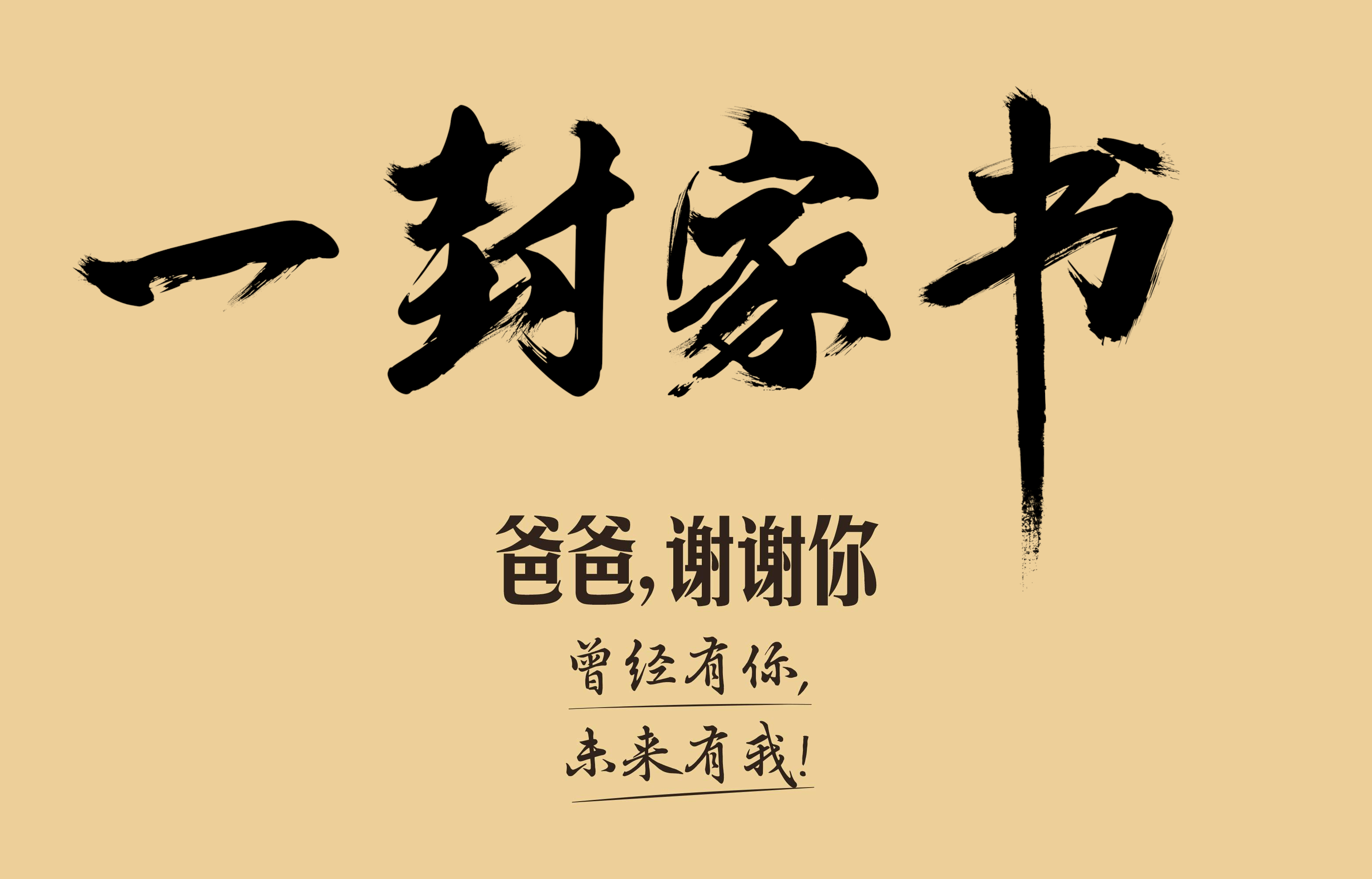

李谷一演唱

王菲Faye Wong演唱

雷佳演唱
 廖昌永演唱
廖昌永演唱

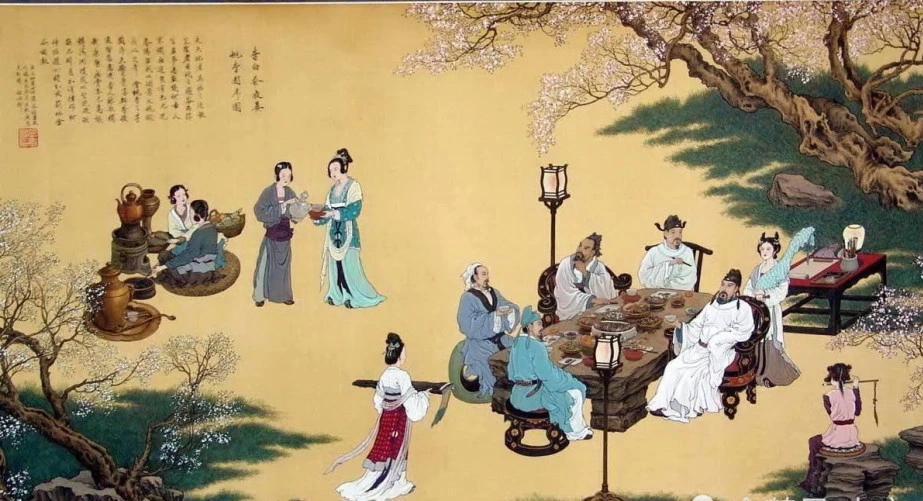
畴昔通家好,相知无间然。
续明催画烛,守岁接长筵。
旧曲梅花唱,新正柏酒传。
客行随处乐,不见度年年。
【注释】
守岁:旧时民间于除夕之夜,一家团坐,饮酒笑乐,通夜不眠,称为“守岁”。
【译文】
长期以来两家关系就很好,彼此相知亲密无间。
天黑之后点起描画的红烛,排起守岁的宴席,友朋列坐其次。
席间歌女唱起《梅花》旧曲,大家畅饮新蒸的柏酒,推杯换盏,间或会有行酒令的游戏。
作者现在是四处漂泊随行处且行乐,一年一年的过去了也不见。
【赏析】
这年的除夕,孟浩然就是在乐成张少府(子容)的官邸度过的。孟浩然与张子容,既有同乡之谊,又是通家之好,更加两人年青时曾同隐鹿门山,晨夕相处,亲密无间,此次孟浩然专程远道来访,张子容当然热情接待。除夕之夜,张子容的官邸,灯火辉煌,画烛高烧,筵备珍馐,酒斟柏叶。他们一边品尝着新酿的柏叶酒,一边畅叙着别后离情,当时内心的快乐,是难以言喻的。席间还有卢氏歌女演唱《梅花》古曲,她的婉转歌喉,更增添了两位人的兴会。
中反应出一些流传已久的习俗,另一方面也写出了与张少府的深情厚谊。











